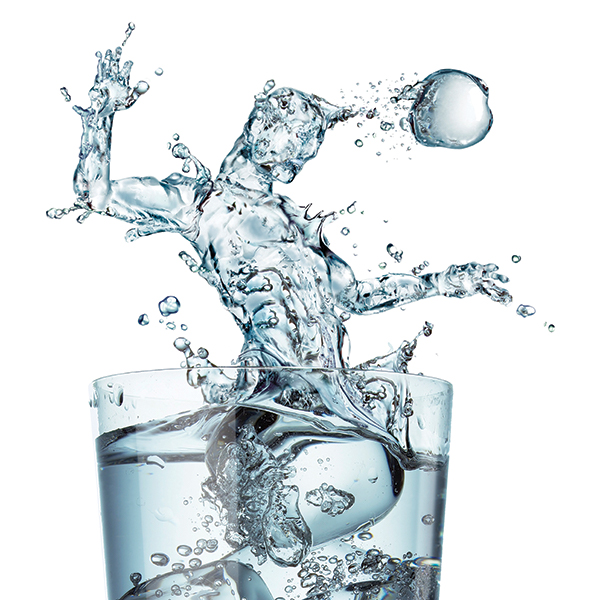
Water: The Wonder Beverage
By Erin Wegner
“Choosing water most of the time is a simple switch you can use to jumpstart your health,” says Boone Hospital dietitian Laura McDermott, MS, RDN, LD. “Water helps in every function of your body. When you are not hydrated adequately, it can put a lot of strain on all of your systems that try to keep you functioning normally.
“Drinking water is one of the most easily accessible and cheapest starting places to help improve your health. Whether you struggle with constipation or want to lose weight or manage blood sugar, you can do yourself a lot of good by consistently and frequently choosing water.”
1. Energy
Feeling sluggish? Many times, the foods we eat and drink can affect our mood. The amount of water we drink is no exception. Drinking an adequate amount of water will give you more energy.
2. Skin
Drinking water not only hydrates the skin, but it keeps it moistened, too – and it shows. Skin cells can look younger and fuller, because water plumps up the skin. The natural oils on your face can also be balanced by the moisture created by staying hydrated.
3. Digestion
The food you eat can be more easily broken down if you drink water not only with your meals, but before and after meals. Because the water helps break down your food, your body can digest the food more efficiently.
4. Ears, Nose & Throat
Drinking water helps keep these working to their full capacity.
5. Muscles
Dehydration can cause muscle cramps and an aching feeling in your joints. By making sure you are drinking enough water, your muscle cramping will subside, and the water will lubricate your joints, making them feel better.
6. Urine
Your urine is a good indicator of dehydration. If you are hydrated, your urine should typically be pale or clear. If your urine is dark colored with an orange tint, that’s a sign that you’re dehydrated.
7. Kidney Stones
Kidney stones are salts and minerals in your urine that form solid crystals. Drinking water weakens the salts and minerals in the urine, making them less likely to form into kidney stones.
8. Fights Illness
Drinking water helps with hypertension, urinary tract infections, constipation, exercise-induced asthma and kidney stones.
9. Body Temperature
Staying hydrated is how your body regulates its temperature.
10. Brain
Our brain tissues are made of water. Depriving your brain of water can also cause you to feel stressed. Dehydration can also affect your short-term memory, alertness and ability to focus.
Laura says, “When it comes to water, often the cues our body gives us aren’t quite as obvious or we aren’t as aware of them, making listening to your body more difficult.” Before making any dietary changes, Laura recommends that you discuss your recommended water intake with your primary care provider or a registered dietitian: your ideal amount of water can be based on medications or health conditions that may contraindicate increasing your water intake.
Tips to increase your daily water intake
- Choose water most of the time – this is a simple switch that can jumpstart your health.
- Set small goals of drinking x ounces of water per hour or drinking x number of glasses before lunch. These goals can help you become more mindful about your water intake.
- Try always having both – if you have a cup of coffee or glass of soda at your desk, also have a cup of water available. If you always drink a glass of milk with dinner, also have a cup of water. If the water is in front of you, you will be more likely to drink it.
- Start your day with a cup of water first thing in the morning. If you’re used to having a hot cup of coffee, make your water hot.
- Set alarms on your phone to help get you into the habit of drinking more water, or find an app for your phone that can remind you throughout the day to drink water.
- Always carry a water bottle with you. If you have it with you, you will not only be able to drink it when you need to, but you will also start to notice how dry your mouth and throat feel.
- Keep a running tally of how many ounces of water you drink each day.